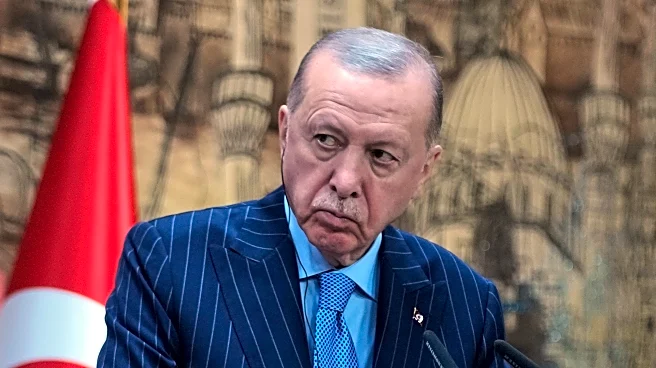Rapid Read • 7 min read
President Trump has implemented a steep 50% tariff on India, following an executive order that added a 25% penalty due to India's purchases of Russian oil and weapons. This move positions India among the countries facing the highest tariffs globally, potentially impacting its export-driven economy. In response, Indian Prime Minister Narendra Modi has announced tax cuts and urged domestic self-reliance. Modi has encouraged small businesses to display 'Made in India' signs, emphasizing economic independence. The Indian government is also planning to overhaul its indirect tax system, including the Goods and Services Tax (GST), to stimulate consumption and mitigate the tariff's effects.
AD
The tariffs imposed by President Trump could significantly affect India's economy, which relies heavily on exports to the United States. As the U.S. was India's largest trading partner, the tariffs may disrupt industries such as textiles, jewelry, and seafood, impacting millions of livelihoods. Modi's push for self-reliance and tax reforms aims to cushion the economic blow and promote domestic consumption. This situation highlights the geopolitical tensions affecting global trade and the strategic economic adjustments countries must make in response to such policies.
India is expected to continue its efforts to reform its tax system and promote domestic manufacturing to counteract the impact of the tariffs. The government's focus on self-reliance may lead to increased investment in local industries and innovation. Additionally, the international community will likely monitor the situation closely, as it could influence global trade dynamics and bilateral relations between the U.S. and India.
The tariff situation underscores the broader trend of economic nationalism and protectionism seen globally. Modi's emphasis on self-reliance reflects a shift towards reducing dependency on foreign trade, which could have long-term implications for India's economic strategy. This development also raises questions about the ethical and strategic considerations of using tariffs as a tool in international diplomacy.
AD
More Stories You Might Enjoy












